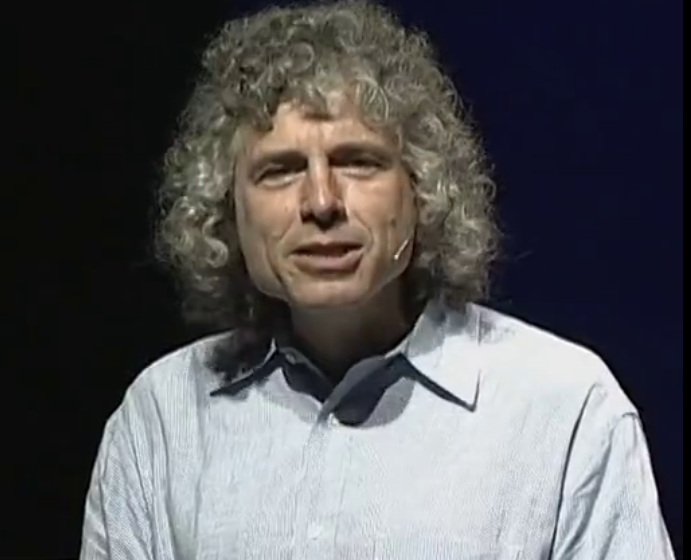Now, I'm sure most of you have seen the movie "Fargo."
我相信你们中大多数人都看过《冰血暴》这部电影
And you might remember the scene in which the kidnapper is pulled over by a police officer,
你们可能还记得其中的一段:一个警官要绑匪把车开到路边
is asked to show his driver's license and holds his wallet out
叫他出示驾照,绑匪把钱包拿出来
with a 50-dollar bill extending at a slight angle out of the wallet.
有一张50美元的钞票以一个小角度从钱包里伸出来
And he says, "I was just thinking that maybe we could take care of it here in Fargo,"
然后绑匪说,“我在想,或许在法哥镇这个鬼地方我们俩得共同保管这个”
which everyone, including the audience, interprets as a veiled bribe.
每个人,包括观众都理解为含蓄地提出贿赂
This kind of indirect speech is rampant in language.
这种间接表意在语言中泛滥

For example, in polite requests, if someone says, "If you could pass the guacamole, that would be awesome,"
比如说在礼貌地提要求时,如果有人说,“如果你把鳄梨色拉酱递过来就太棒了”
we know exactly what he means, even though that's a rather bizarre concept being expressed.
我们太清楚他是什么意思了,尽管字面上表达出来是个很别扭的概念
"Would you like to come up and see my etchings?"
“您愿意来看一下我的蚀刻版画吗?”
I think most people understand the intent behind that.
我想大多数人理解这么说的意图
And likewise, if someone says, "Nice store you've got there. It would be a real shame if something happened to it"
同样的,倘若有人说,“呦,你的店真不错。要是发生了点什么事儿可就不好了”
we understand that as a veiled threat, rather than a musing of hypothetical possibilities.
我们知道这是个委婉的威胁,而不是在思考假设的可能性
So the puzzle is, why are bribes, polite requests, solicitations and threats so often veiled?
所以我们说的谜题就是:为什么贿赂、礼貌的要求、恳请、威胁经常要遮遮掩掩的?
No one's fooled. Both parties know exactly what the speaker means,
没人是傻子。双方都知道谈话人说的是什么
and the speaker knows the listener knows that the speaker knows that the listener knows, etc., etc.
谈话人也知道听者心里清楚,谈话人知道听者心里清楚,等等,等等
So what's going on?
所以这是在干嘛呢?
I think the key idea is that language is a way of negotiating relationships,
关键是在于语言是磋商人际关系的一种途径
and human relationships fall into a number of types.
而人际关系分为许多种



